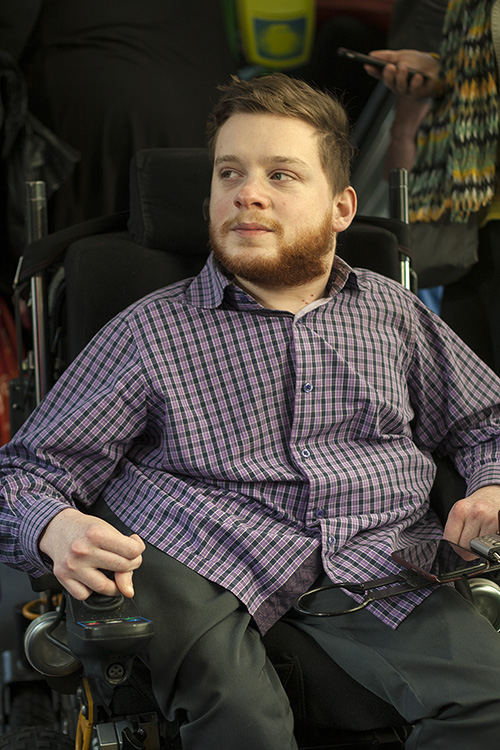Disability Loop Project Officer Carl shares his thoughts on employment and workplace support
 Never underestimate the importance of feeling valued. When people have a job it shows they are useful, having skills and ideas that are valuable to others. Most people with disability would love to work. Unfortunately, people with disability often face barriers when trying to get and maintain a job. These barriers can include a lack of support that prevents people with disability from demonstrating their value, along with the assumption by some that people with disability are not able to be valuable employees in the first place.
Never underestimate the importance of feeling valued. When people have a job it shows they are useful, having skills and ideas that are valuable to others. Most people with disability would love to work. Unfortunately, people with disability often face barriers when trying to get and maintain a job. These barriers can include a lack of support that prevents people with disability from demonstrating their value, along with the assumption by some that people with disability are not able to be valuable employees in the first place.
From my personal experience as someone with a disability, I know it is difficult to find employment. While it is hard for everybody to get a job, I do not think it is an exaggeration to say that it is more difficult for people with disability. I believe this extra level of difficulty can be turned into a strength, as it has built my resilience and resourcefulness when looking for jobs. I try harder when starting a new job and my disability has made me more determined to stay employed. What I have mentioned just now would be music to the ears of potential employers, they would value these sorts of skills very highly. It comes down to potential employers giving people with disability a chance, and making sure the person with a disability does everything they can to make the best of it.
A positive attitude alone will not get you a job, it needs to be combined with personalised support. This is where the NDIS and employment supports come in. While I know how to operate a filing cabinet properly, I cannot physically do this due to my disability and lack of motor skills. Through the NDIS the personal support I am likely to receive to ‘be my hands’ would help to overcome my physical limitations. This daily support would complement the employment specific supports I need, such as specialist software. Even though the NDIS and Job Access between them will likely fund these reasonable and necessary supports, it is not charity. The support I require helps me keep my job, and the insurance model of the NDIS recognises that increasing income through employment will reduce my reliance on welfare such as the disability support pension. More generally, it will also free up time for family carers and informal support to enter the workforce.
People often say they go to work to pay the bills. I believe a good job offers much more than money, particularly for people with disability. In my case, being supported at work includes assistance with meals (plus coffee!) and help with the bathroom. When these supports are funded I am able to work full-time, I can move off the disability support pension and pay taxes. In a way, I am now helping fund the NDIS! Importantly though, employment makes me feel valued, and the importance of this cannot be overstated.

